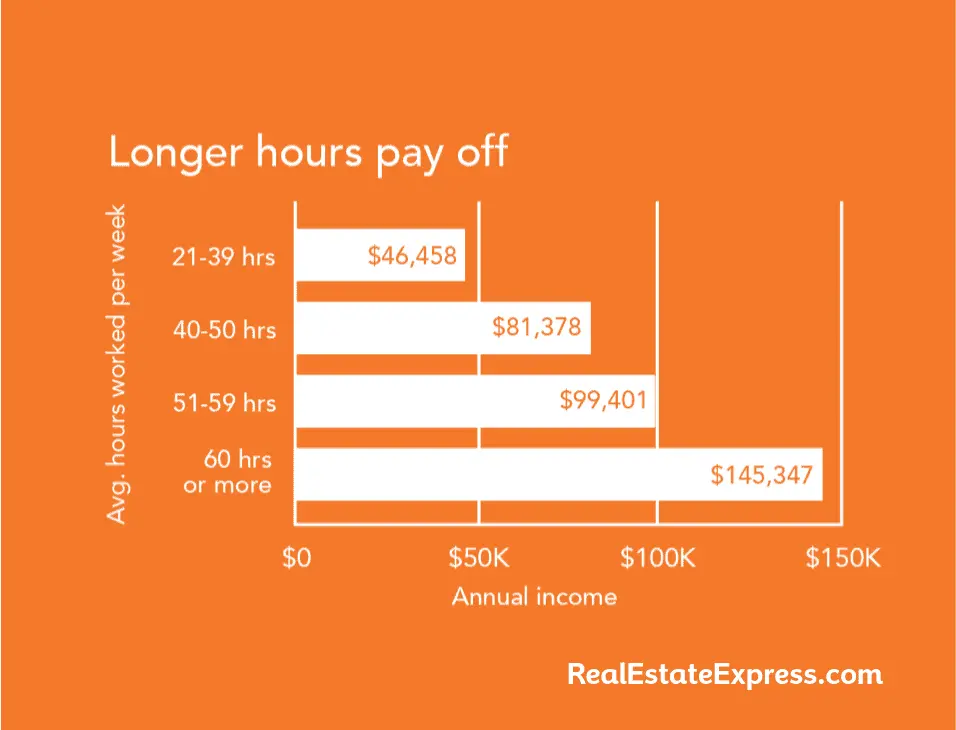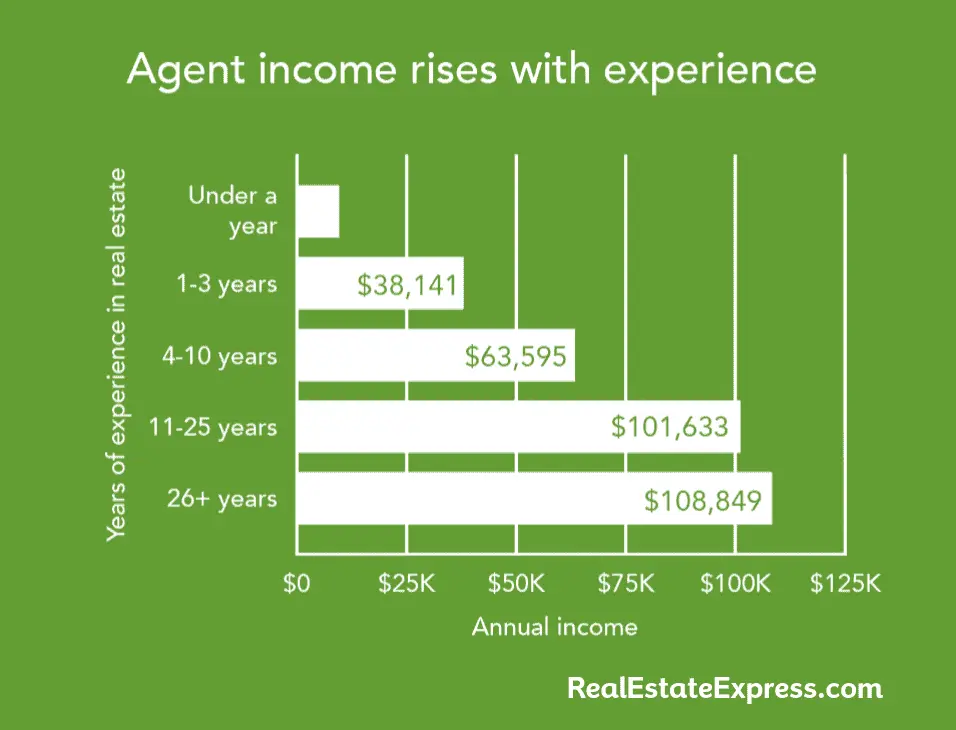Getting a real estate license opens the door to many types of real estate related jobs. With a continual demand for housing and commercial tenancy, careers in real estate can be lucrative, long-term choices for the right individuals.
But like all other fields, a job in real estate does have its ups and downs. Before pursuing a real estate license, it’s a good idea to be well-informed so you can weigh the benefits and drawbacks for yourself. We’ll walk through the various job paths available with a real estate license, discuss how to get started in the licensing process, and examine some keys to success in the real estate profession.
What Jobs Can You Get With a Real Estate License?
There are several professional avenues available to those with a real estate license. While the following list outlines the career paths most directly related to real estate sales, getting a real estate license can also become a gateway to other professions, such as a home stager, real estate photographer, home inspector, real estate attorney, and more.
Real Estate Agent
The most common reason to pursue a real estate license is to become a real estate agent. On the most basic level, real estate agents list properties for sale and help buyers find properties to purchase. Additional responsibilities include drawing up contracts, negotiating sales, hosting open houses, coordinating closings, and more.
Real estate agents may work in residential or commercial property transactions. Agents sometimes pursue various specialties to increase their expertise in the market. For example, real estate agents might specialize in agricultural properties, undeveloped land, investment purchases, luxury properties, foreign sales, new construction, military relocation, and more.
Real estate agents are paid based on commission. That means that they take a set percentage of the sale price at the time of closing. If a deal fails to close, the agent doesn’t get paid. Choosing a speciality allows a real estate agent access to specific niches that can increase their overall income. We’ll discuss this in greater detail below.
Real Estate Broker
Real estate brokers start by gaining experience as real estate agents, then go on to get additional training and certification as a broker. Real estate brokers continue to perform many of the same job functions as agents; they assist both buyers and sellers in property sales.
In addition, a real estate broker has the opportunity to open their own brokerage or oversee other real estate agents within a brokerage franchise. Real estate brokers mentor agents and manage their transactions, and in exchange they take part of the commission for each sale.
Property Manager
Property managers oversee the day-to-day maintenance and administration of investment properties. They are involved in marketing the property, showing it to potential tenants, screening applicants, administering leases, collecting rent, fielding complaints, hiring servicemen, inspecting the property, and much more.
Property managers may require additional certification beyond a real estate license, depending on what state they practice in and what types of property they manage. For example, property managers who work in multi-unit residential properties usually need a commercial management certification or license.
Property Developer
As the name implies, property developers buy property and then develop it into something more salable. Examples might include purchasing vacant land and developing a new subdivision or buying an abandoned warehouse and turning it into a retail store.
Property developers’ duties can vary, but may include coordinating public permits, hiring architects and builders, selling or leasing the end product, and more. Developers benefit from having a real estate license because they can negotiate deals for themselves both on the buying and selling end.
Appraiser
Appraisers are an objective third party hired to determine the value of a piece of real estate. Appraisals are usually required by lenders in order to obtain a mortgage; an appraisal confirms that the purchase price is indeed at or below the value of the property. Often appraisers start as a real estate agent in order to get experience in the field, but they must get additional training and licensure to be an appraiser.
Real Estate Investor
There are many types of real estate investors, and not all investors have their real estate license. Home flippers are one type of investor who may find a real estate license useful, though they should count the cost and consider their long-term plans first. Sometimes full-time investors find it helpful to have their real estate license because they can avoid paying an agent to represent them during buying and selling deals.
Getting Started in Real Estate
The Process
- Understand your state’s requirements. Each state has different guidelines regarding real estate licenses. In general, you need to be at least 18 or 19 years old and be a legal US resident. In addition, all states require pre-licensing courses culminating in a passed exam. But the classes and number of credit hours vary between states; some states require as few as 60 hours, while others require upwards of 160 hours. Before enrolling in any real estate licensing classes, be sure that you are signing up for the courses that align with your state’s requirements.
- Complete the pre-licensing education courses. Once you understand which classes need to be completed, you can get started on your real estate education. Classes include topics like real estate ethics, modern best practices, contracts, local real estate laws, fair housing, and more. Classes can be taken in the classroom, online, on demand, or via at-home study. For those interested in completing their pre-licensing education remotely, pursuing a real estate license online offers the flexibility to match any schedule, providing a comprehensive curriculum that prepares you for success in your real estate career.
- Take the real estate salesperson exam. Upon completion of the state-directed pre-licensing courses, you’ll need to sit for the real estate salesperson exam. This is usually done in person or via an online proxy service. Taking a practice test prior to the official test is recommended. The real estate salesperson test is very comprehensive, and some prospective agents have to take it two or three times before passing.
- Find a brokerage. After passing your real estate exam, you and your broker will need to fill out paperwork to register with the state. You cannot practice as a real estate agent without the mentorship of a broker. Once your state registration forms are accepted, you will receive your real estate license.
- Renew your license. Real estate licenses need to be renewed in order to stay active. As you’ve probably guessed by now, the process and costs vary by state, but in general you can expect to renew a real estate license every two years. Usually that means completing continuing education courses and paying a renewal fee.
The Cost
There are two main expenses to think about when getting a real estate license: the cost for the classes and the cost for the license.
Pre-licensing education is relatively affordable, but there’s a wide range of fees based on location and on type of classes. Here’s a breakdown of cost ranges to expect:
- Teacher-structured classes: $300 – $900+
- On-demand classes: $200 – $800+
- Home study: $180 – $600
Once courses are completed, you can expect to incur the following costs to obtain a license :
- Application fee: $30 – $90
- Fingerprinting and background checks: $100 – $125
- Exam fee: $37 – $50
- Real estate license: $75 – $300
There are also ongoing costs associated with maintaining a real estate license. Between renewal fees, MLS fees, lockbox fees, and association fees, a real estate agent can anticipate yearly costs in the $1,200 range.
The Time
When pursuing your real estate license, you can expect to spend four to six months working through the licensing procedure. In reality, though, the time it takes to get a real estate license varies based on the type of courses taken and the personal drive of the student. Prospective agents who concentrate solely on courses (and take them on-demand or at home) can be done in as little as eight weeks.
The Benefits
Typically, real estate agents are seen as independent contractors, and as such they are not given employee benefits like health insurance, dental insurance, paid vacation, or retirement plans. On the flip side, they do enjoy the benefits of self-employment, like unlimited time off and a completely flexible schedule.
The First Year
For the sake of discussion, let’s say that the first year with a real estate license is typically spent as an agent (a fair assumption, since many other real estate professions need additional training). While getting into a career as a real estate agent is relatively simple and comes with great advantages, a new agent will need to be prepared for the reality of delays in financial payoffs.
New agents have yet to establish the referrals and repeat clients that their seasoned counterparts have. They’re usually assigned contacts in turn from their brokerage, but those clients may or may not pan out. Even when they do, there’s always a significant delay between doing the work and getting paid, since payment comes at closing (which is typically 30 to 60 days after contract signing). Newer agents rely on word of mouth and may spend a good amount of time and money getting their name out there before they develop financial momentum.
As such, new agents should go into the first year of licensure with a plan in place for making money outside of normal real estate agent duties. Sometimes brokers will let new agents act as assistants or listing specialists (paid hourly) while they’re still learning, but not all brokerages have those types of positions available. Let’s discuss some additional options.
How To Make Money With a Real Estate License
Part-Time vs. Full Time
Real estate is one of the few jobs where you have ultimate time flexibility. There are many real estate agents who work part-time in another field to bring in a more stable income. Because real estate agents do a lot of their work outside of normal business hours, it’s possible to list and show homes only in the evenings or on weekends (thus putting in part-time hours).
But as with any career path, the more you put in, the more you get out. It should come as no surprise that the more time agents spend working, the higher their annual income. Those who work twenty hours or less per week see an average of $24,566 per year in income.
As a rule of thumb, those who choose to put in full-time hours have the ability to close more deals, and therefore they see greater commissions. However, not all those hours need to be spent hosting open houses or driving buyers around town (activities that may or may not see a financial return).
As we’ll discuss below, diversifying the use of a real estate license – in other words, the way those long hours are spent – can greatly impact an agent’s income.
Image source: Real Estate Express
Growing Your Real Estate Income
Successful agents not only put in the time every week, but they also put in time over the course of many years. Research shows that real estate agents who continue to gain experience consistently grow their income.
Much of that growth has to do with the personal connections made over time. Referrals and recommendations are an agent’s lifeblood, and those tend to snowball as an agent continues their career. Sure, there will be good years and bad years as far as the housing market goes. But gaining experience leads to growing income in the long haul.
In addition, many agents choose to pursue specialties as they become more familiar with real estate. Specializing in a certain aspect of the business helps fine-tune an agent’s experience, thus appealing to more buyers and sellers in that particular area.
Farmers want to work with agricultural specialists, investors want to work with investment specialists, and so forth.

Image source: Real Estate Express
Diversifying Your Real Estate Income
As mentioned above, it takes time to build a profitable career with a real estate license. Plus, being a real estate agent isn’t a job that always earns a consistent paycheck even if you’ve been doing it a while. Markets shift. Closing dates get pushed back. Sales fall through.
To offset the inherent instability, many real estate agents choose to diversify their sources of income within the real estate realm. Some choose to pursue their broker’s license or their property management certification while still acting as an agent. Others may get training as real estate paralegals so they can assist real estate attorneys part-time.
Real estate investing is popular among real estate agents as well. Since agents are constantly on the lookout for good property deals, it makes sense that they would pursue some good investments for themselves.
Some agents purchase income properties to be rented out and subsequently act as landlords. Others look for properties that can be flipped for a profit; nationwide average gains on a flip are $63,500, which can add a significant boost to an agent’s annual income.
At New Western, we recognize the skill, dedication, and expertise of real estate professionals, especially agents. The real estate agents on our staff enjoy a supportive environment, ongoing education, and greater stability in the form of shorter closing times. If you’re looking into real estate as a profession, consider a career at New Western, where real estate agents put their licenses to great use by specializing in investment properties.








